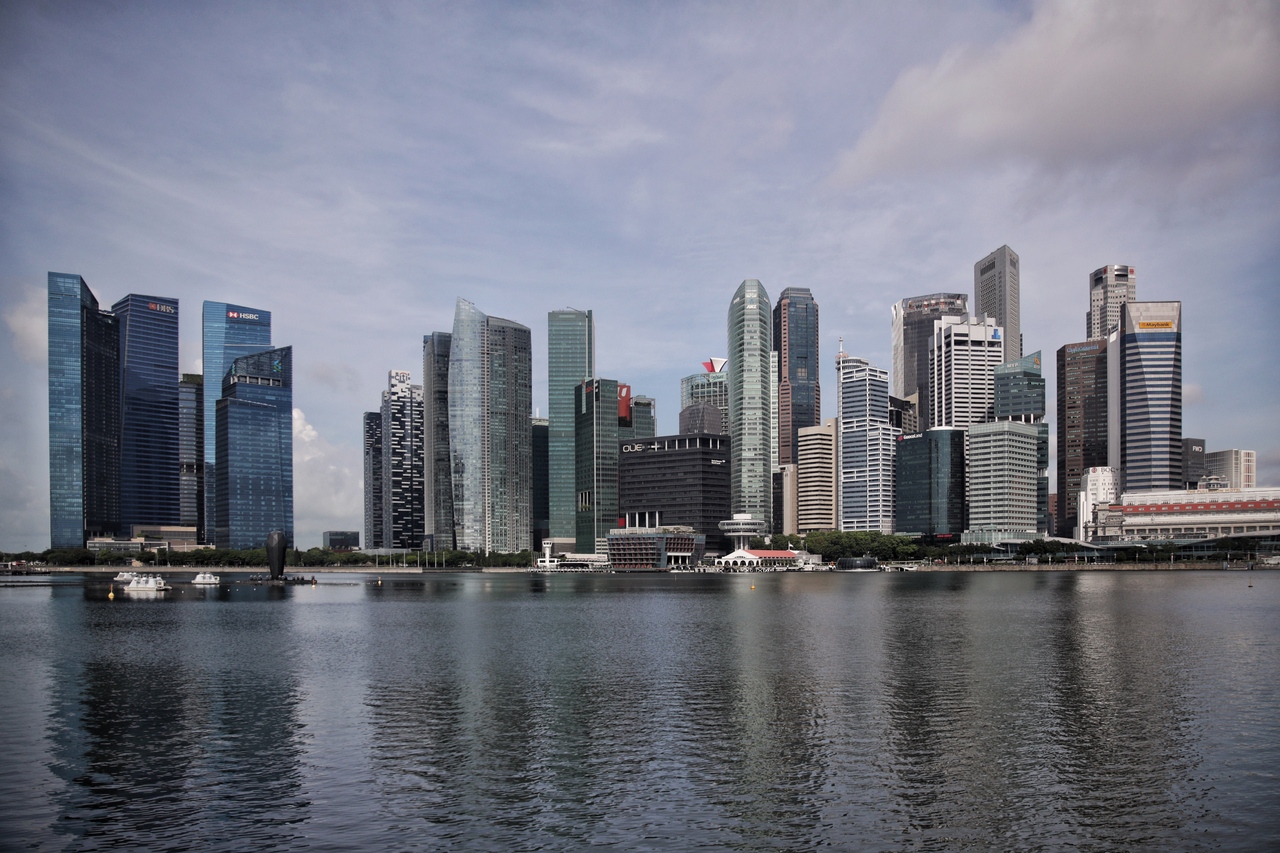G-7's global minimum corporate tax rate: What will it mean for Singapore?
Sign up now: Get ST's newsletters delivered to your inbox

G-7 finance ministers reached a landmark accord on June 5 backing the creation of a global minimum corporate tax rate of at least 15 per cent.
ST PHOTO: GIN TAY
Follow topic:
Finance ministers from the Group of Seven (G-7) rich nations reached a landmark accord last Saturday (June 5) backing the creation of a global minimum corporate tax rate of at least 15 per cent, an agreement that could then form the basis of a worldwide deal.
Major economies are aiming to discourage multinationals from shifting profits - and tax revenues - to low-tax countries regardless of where their sales are made.
Details are still being worked out, and the issue will be discussed among G-7 leaders meeting this weekend as well as by G-20 finance ministers next month.
The Straits Times asks experts about what the accord will mean for Singapore.
Q: Will global tax change Singapore's value proposition?
Mr Chris Woo, tax leader, PwC Singapore
There will not necessarily be a uniform response across the board. Big tech can move more easily compared with manufacturing, but even then, it depends on the availability of a skilled workforce.
Others who are seeking to apply other strategies such as the diversification of supply chains or require proximity to markets may be less inclined to move.
What will be considered especially by more mobile companies like big tech is whether the non-tax benefits of operating in Singapore outweigh the loss of the benefits of a lower tax rate.
And whether Singapore can provide other measures to attract such big tech players to continue to be in Singapore to compensate for the loss of the benefits with the top-up to a global minimum tax.
Q: Will the tax affect all MNCs here?
Mr Liu Hern Kuan, head of tax at Tan Peng Chin law firm
The Organisation for Economic Cooperation and Development (OECD) has guided that a minimum tax should apply to MNCs that have annual revenue of at least €750 million (S$1.2 billion), and this revenue limit may well apply when the deal is ironed out. Also, certain sectors or entities may be excluded from the minimum tax, although this is less clear at this point.
The majority of companies benefiting from existing tax incentives are likely to fall under the €750 million revenue threshold and be unaffected by the G-7 deal. However, the multinational companies (MNCs) that are caught by the minimum tax are likely to have a disproportionate effect on Singapore's economy.
Q: Are there other factors beyond tax that make Singapore attractive?
Ms Soh Pui Ming, Singapore head of tax, Ernst & Young Solutions
Beyond Singapore's competitive tax regime, large MNCs are also attracted by its X-factors, such as political stability, sound policies, robust ecosystem, ease of financing, intellectual property protection and strong talent pool.
Tax incentives are granted to MNCs on a very selective basis - where the MNCs have substantial operations and have committed to continued investments in Singapore, in terms of skill transfer (such as research and development), and capital investments to create meaningful employment for Singaporeans.
With the global minimum tax proposal, large MNCs, including big tech players, could experience an increase in their global effective tax rate, as the home country may require the "top-up" payment to be made. This could erode the benefits of the tax incentives granted by Singapore to attract such foreign investments.
This will mean that Singapore will need to accelerate the build-up of its X-factors to attract and retain the MNCs, which for the tech sector may mean the need to develop a talent pool fast enough to support this rapidly growing industry.
That said, Singapore's headline tax rate of 17 per cent, being close to the floor rate, remains competitive in the new tax world.
Q: How would a global minimum tax rate impact S'pore's draw as a regional and global hub?
Mr Chris Woo, tax leader, PwC Singapore
High land and labour costs are some of the factors that affect Singapore's competitiveness. Singapore offers tax incentives to potential investors to address such potential shortcomings to create a more level playing field for itself.
There is the risk that the long-term ramifications to Singapore's attractiveness to certain foreign investors may diminish unless there are alternative measures or factors that will make Singapore attractive even if the efficacy of tax incentives is diminished.
We are confident that existing measures can be enhanced and new ones can be developed to maintain and even increase the attractiveness of Singapore for businesses to decide that it's the right place to grow and do business in.
Q: Does the proposed move threaten the nation's tax sovereignty?
Mr Loh Eng Kiat, tax practice leader at Baker Tilly Singapore
Some may see this as a dilution of tax sovereignty.
Some of these announcements, such as the reallocation of some profits/taxing rights to "market countries" and global minimum corporate tax on large firms, reaffirm the understanding that Singapore will be increasingly constrained in pursuing its own tax policy mix, and can be demotivating for our policymakers.
Singapore is also actively involved in the ongoing discussions around these landmark revisions to international tax rules and maintains the stance that suitable adjustments could be made to our corporate tax system in due course.
It may be reassuring for our business community and prospective investors if our country's officials start releasing certain precise positioning statements.
For example, with the revisions being meant to apply to large MNC groups, it is reasonable for the authorities to emphasise upfront (as what Hong Kong appears to have done recently) that Singapore's eventual corporate tax response measures will aim to minimise the impact on local SMEs and are intended to remain simple and accord certainty to most businesses and the majority of investors.

